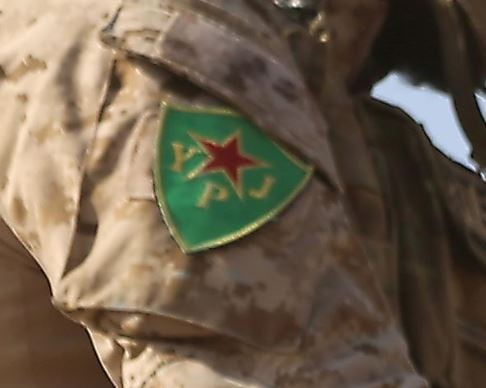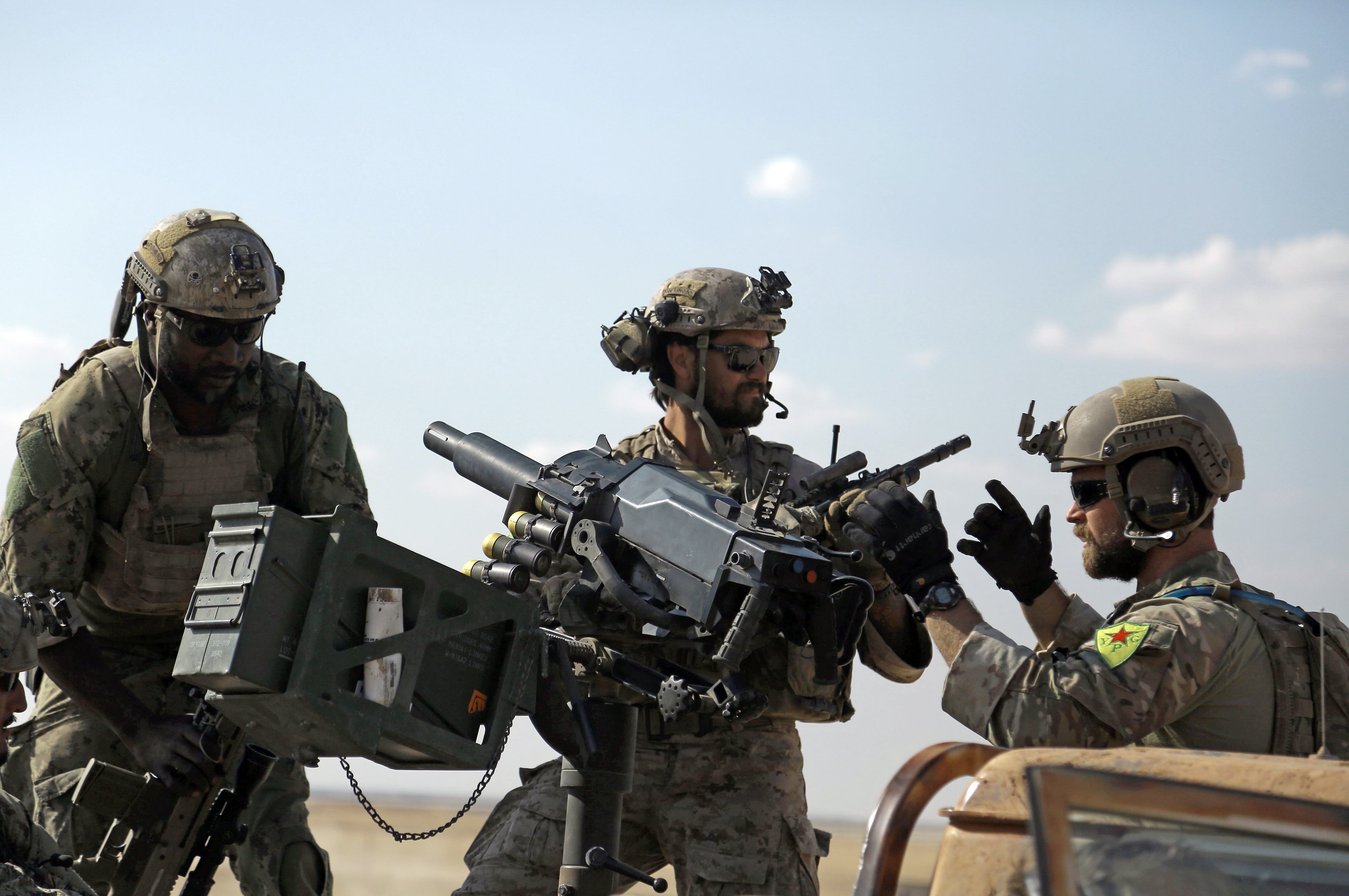U.S. military commanders have ordered told special operations troops in Syria to stop wearing uniform arm patches bearing showing the insignia of a controversial Kurdish rebel group known as the YPG, highlighting tension within the American-led coalition fighting Islamic State militants there.
"Wearing those YPG patches was unauthorized, and it was inappropriate and corrective action has been taken," Army Col. Steve Warren, a Baghdad-based spokesman for U.S. troops in Baghdad, told reporters Friday. "And we have communicated as much to our military partners and our military allies in the region.," Warren said.
The order came after photographs emerged Thursday showing a cadre of American troops in Syria, and at least one bearded soldier wearing both an American flag patch and also a green patch with a star signifying the Syrian Kurdish People's Protection Forces, known as the YPG.
The photographs sparked outraged from the Turkish government. Turkey considers the YPG to be a terrorist group linked to the Kurdistan Workers' Party, or PKK, which has fought an insurgency and mounted terrorist attacks inside Turkey for decades.
Turkish Foreign Minister Mevlut Cavusoglu, at a news conference in Turkey on Friday, said U.S. troops wearing YPG patches revealed "hypocrisy" and "double standards."

Close-up of the Kurdish militia patch being worn by American commandos in Syria.
Photo Credit: Delil Souleiman/AFP/Getty Images
"We advise [the US troops] to wear badges of [the Islamic State group] or [the Al-Qaeda affiliate] Al-Nusra when they go to other parts of Syria and badges of Boko Haram when they go to Africa," Cavusoglu said derisively. "If they don't see these [groups] as the same as the YPG, then this is double standards, hypocrisy.," he said.
Warren's condemnation of the patch Friday ran counter to Pentagon statements Thursday, when Defense Department spokesman Peter Cook said it was normal for special operations troops to try to "blend in with the community to enhance their own protection."
The photographs were the first to show U.S troops in Syria. They were taken in a village about 40 miles north of the Islamic State group's self-declared capital of Raqqa, which is the target of a newly announced offensive being led by a disparate group of Kurdish and Arab fighters, and backed by American military advisers and air support.
The tension with Turkey, a NATO ally, highlights the shaky alliances the U.S. is trying to forge in Syria, and the ethnic and sectarian tensions that could tear apart this fragile coalition. The U.S. needs Turkey’s help to cut off the Islamic State militants’ primary supply routes to the outside world, which run north from Syria through Turkey.
At the same time, the U.S. considers the YPG to be one of its strongest allies on the ground in Syria.
There are currently about 200 U.S. special forces troops in Syria and an additional 100 on their way. Officially, Pentagon officials say those troops are there to support an umbrella group of Syrian rebels known as the Syrian Democratic Forces, or SDF. Yet many experts say the SDF are mostly Kurdish fighters linked to the YPG with only a small cadre of Sunni Arabs.
U.S. military officials emphasize the American support for the Arab faction as well.
"Our focus is to provide advice and assistance to the Syrian Democratic Forces, particularly the Syrian- Arab component of that force," Warren said Friday.
Somewhat unclear are the Army’s rules for special operators wearing patches from foreign armed forces are somewhat unclear.
"Army regulations say don't wear those patches. That said, the Special Forces community has a long and proud history of wearing such patches when they are partnering with forces around the world, and you'll see examples of that in Afghanistan, in Iraq, in Latin America and all over the world where these special forces personnel train and conduct, you know, foreign internal defense type operations," Warren said.
"This is something that they often do, and it's an effort to, you know, just kind of connect with those that they're training. But the fact of the matter is, you know, it's not authorized. So in this case, you know, they were directed to remove the patches. The important thing," Warren added, "is that the situation has been corrected and that we have communicated to our allies that such conduct was inappropriate and it was unauthorized." Warren said.
Andrew Tilghman is the executive editor for Military Times. He is a former Military Times Pentagon reporter and served as a Middle East correspondent for the Stars and Stripes. Before covering the military, he worked as a reporter for the Houston Chronicle in Texas, the Albany Times Union in New York and The Associated Press in Milwaukee.





